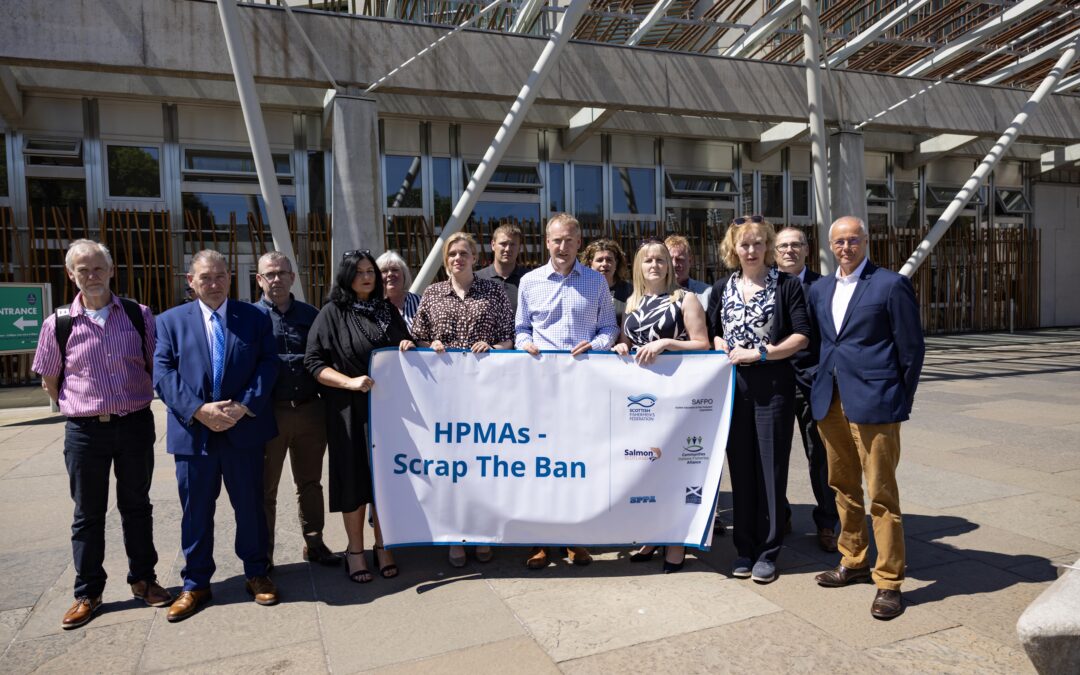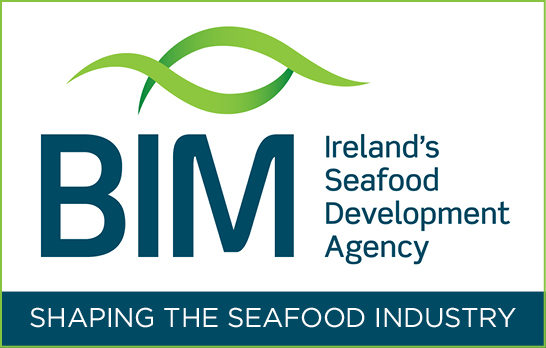Scotland’s seafood sector today launched a concerted campaign against Scottish Government plans to ban fishing, aquaculture and harvesting in at least 10% of the country’s waters.
Representatives from the Scottish Fishermen’s Federation, Seafood Scotland, Salmon Scotland, Scottish Association of Fish Producers’ Organisations, Community Fisheries Inshore Alliance and Scottish Seafood Association submitted a petition calling on ministers to drop its policy on Highly Protected Marine Areas (HPMAs).
They urged people to support the petition in large numbers to underline the strength of opposition to the controversial conservation measures which would have a catastrophic effect on the sector.
Speaking outside the Scottish Parliament, Elspeth Macdonald, chief executive of the Scottish Fishermen’s Federation, which represents around 400 vessels, said: “Banning fishing in at least 10% of our waters is the wrong approach.
“No evidence has been produced by ministers to show why HPMAs are necessary or that they will achieve their very vague aims.
“They are being introduced to appease the Greens in the coalition government and will cost jobs, devastate Scottish coastal and island communities and will push the seafood sector into the red.”
“It’s important that we push this message home, so we’re calling on people to sign the petition once it goes live on the Parliament’s website!”
Tavish Scott, chief executive of Salmon Scotland, said: “Scottish salmon and Scottish seafood are the best in the world, but HPMAs put this global success story at risk.
“There is scant scientific justification for the proposed HPMAs, and an outright ban on responsible sea activities is not the solution.
“The sustainable growth of our salmon farms and other sectors is vital for the well-being of our coastal communities, the overall economy, and the vision of the Scottish Government.
“These proposals present a significant threat to our rural way of life, and opposition is growing both inside and outside of Holyrood.
“That’s why we have joined forces with other seafood organisations to launch this petition, urging ministers to adopt an evidence-based approach that protects both the environment and the livelihoods of hardworking Scots.
“We encourage everyone to sign the petition and show their support for sustainable and fair policies that benefit our marine environment and coastal communities.
“The Scottish Government must base its decisions on evidence, science, and facts, rather than pandering to political pressures and appeasing campaign groups funded to undermine our sector.”
Elaine Whyte of the Community Inshore Fisheries Alliance said: “HPMAs are only the latest example of top down policies which threaten coastal communities and ignore the positive roles fishing communities play in providing low carbon, sustainable food to meet a growing demand for protein.
HPMAs disregard local knowledge and undermine established sustainable fisheries management practices and the security of low carbon footprint food sources.
“Already 37% of Scottish waters are classified as protected, and we are still witnessing ambitious Marine Protected Area, Priority Marine Features proposals and regional closures as well as a potential inshore fishing effort cap scheme.
“We urge government to be mindful of our fishing communities’ resilience to survive and their breaking points, and work alongside them before communities are damaged beyond repair.”
Jimmy Buchan, chief executive of the Scottish Seafood Association, said: “While the government’s aim to protect Scotland’s marine environment is commendable and over a third of Scotland’s seas are already designated for protection, concerns have been raised about the impact of HPMAs on rural communities and the businesses that support them.
“It is crucial that the Scottish Government listens to all stakeholders and takes into account their concerns and perspectives.
Furthermore, the government must not be beholden to any particular political agenda, including that of the Greens, and must ensure that the interests of all stakeholders are protected.”
Elspeth Macdonald concluded, “Nobody cares more about our marine environment than those who are dependent upon it for their livelihoods. Coastal communities the length and breadth of Scotland are united in their opposition to this ill-founded policy. We call on the Scottish Government to scrap their plans, scrap the ban and acknowledge that it’s time to think again.”
The petition can be signed in the coming days once it has gone live. Those interested in signing can submit their email addresses here and receive a copy of the petition once it is available.
Full text of petition:
Scotland’s government and seafood businesses share the same goal – healthy, productive seas for a healthy and productive economy.
This requires responsible and sustainable use allowing natural resources to thrive, balancing food production and nature conservation. It should be supported by continued advancement of knowledge through improved science and evidence.
We call upon the Scottish Parliament to urge the Scottish Government to:
-
Drop the current policy that commits the Scottish Government to designate “… a world-leading suite of Highly Protected Marine Areas (HPMAs) covering at least 10% of our seas …” outlined in the Bute House agreement – it’s the wrong approach, designed for the wrong reasons.
-
Follow the science – develop an evidence-based approach that analyses the potential issues to inform policy outcomes that can demonstrably achieve the Scottish Government’s objectives of protecting the marine environment and enabling coastal communities and our world-class seafood sector to thrive. This approach should be led independently.
-
Evaluate what’s already been achieved with the existing marine protected area (MPA) network, covering 37% of Scottish waters, and their effect in achieving intended outcomes.
-
Learn from HPMA pilots in other UK waters.
-
Build a plan together through a collaborative and constructive approach between government and stakeholders to devise a science-based scheme that has genuine buy-in across all stakeholders.


Recent Comments